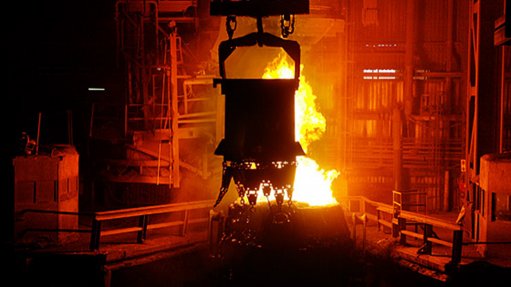
Evraz Highveld Steel and Vanadium creditors would, on Tuesday October 13, vote on a business rescue plan, which included a recommendation that International Resources Limited (IRL), of Hong Kong, be allowed to purchase the company.
The vote was initially set for September 28, but was postponed for two weeks to offer creditors more time to understand the various components of the plan, which was first published on September 16.
Under the plan, R350-million would be made available to settle creditor debts and a further R150-million to settle an emergency loan provided by Industrial Development Corporation. Should it be approved, creditors would receive between 15c and 29c in every rand owed. However, the settlement could be negatively affected should the South African Revenue Service raise an assessment against the company.
The business rescue practitioners, Piers Marsden and Daniel Terblanche, met with creditors on October 8, where they again stood by their assessment that the plan offered the best prospect for restoring the solvency and liquidity of the company.
“We urge creditors to consider the IRL offer as it provides the best outcome for all stakeholders including creditors, shareholders, employees, suppliers and the community as a whole,” Marsden said.
The practitioners had rejected an alternative bid from Global Renewable Energy, owing to the company’s failure to meet the bid requirement of providing a $10-million refundable deposit to gain access to the virtual data room and complete a due diligence.
IRL, which met the criteria, but which is also not well known in South Africa, reportedly had significant experience in the steel, vanadium and titanium industries.
“Importantly we are currently negotiating with IRL the right of last refusal for creditors on future supply to Highveld,” Marsden said, having noted concerns by creditors that their long-standing business relations with Highveld might be recognised by IRL. Should a right-of-last-refusal commitment be secured, it could facilitated ongoing local procurement, as long as suppliers could match IRL's price and quality stipulations.
Should various conditions precedent (only one of which included gaining creditor support) of the IRL bid not be met, the business rescue plan also provided for a controlled wind down of the company.
“The alternative to accepting the business rescue plan would most likely result in liquidation. This is the worst case scenario as it would have far-reaching negative ramifications for the majority of the company’s stakeholders.”